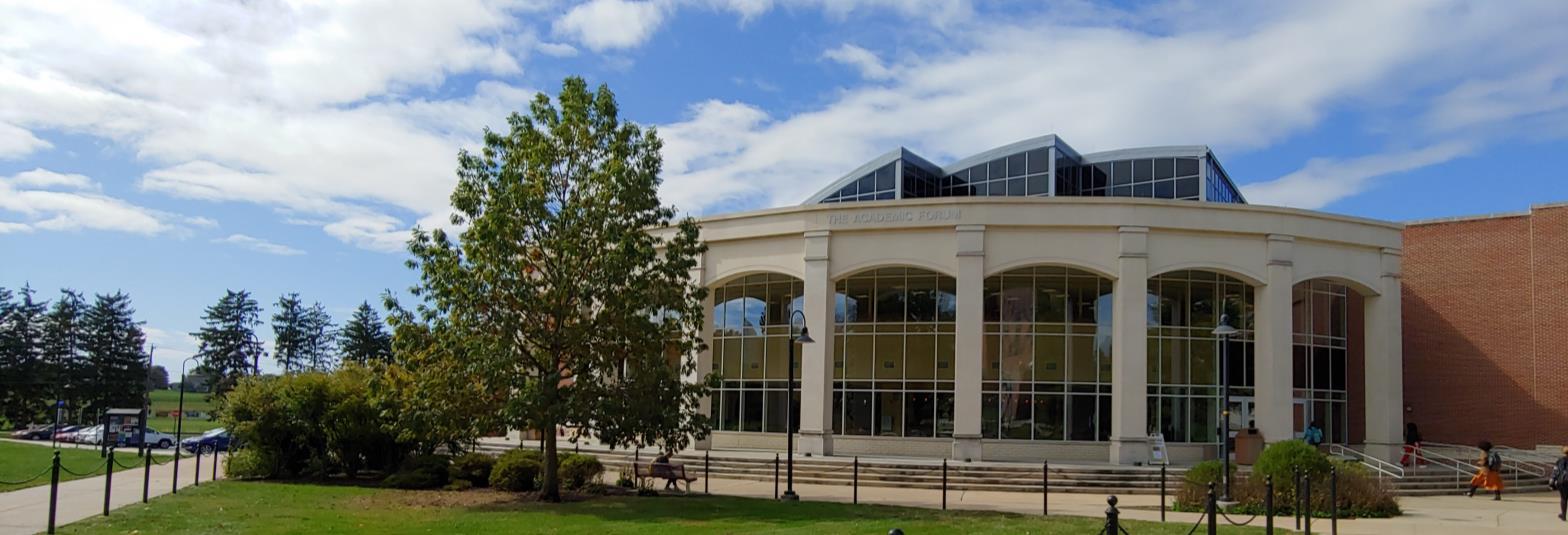
4 minute read
April Calendar
by KU-APSCUF
APRIL2021
@ CALENDAR
Advertisement
S U N M O N T U E W E D T H U F R I S A T
28 29 30 31 01 02 03
04 05 06 07 08 09 10
3:15 pm Executive Council
NO CLASSES
3:15 pm Pre M&D 3:15 pm Rep Council
11 12 13 14 15 16 17
3:15 pm M&D
18 19 20 21 22 23 24
25 26 27 28 29 30 01
NO CLASSES
3:15 pm Executive Council
For more information about any of these events contact the Arian Hungaski at (610) 683-4277 or apscufku@kutztown.edu
Meet Our New Office Manager

Arian Hungaski has taken over the role of Office Manager at the Kutztown University APSCUF office. Arian came to us from the Department of Business Administration at KU where she had been working as the academic secretary. Before KU, Arian worked for ten successful years at her small business, Wanamakers General Store LLC. “I really believe in state institutions as an effective and vital part of educating our kids.” Arian loves Kutztown and is excited for what is in store as the new Office Manager

at APSCUF-KU.
Welcome, Arian!




Changes?
Please inform the KU APSCUF office if you have a new address or any other changes that would require an updated PA Faculty Health and Welfare Fund enrollment Changes?card. Examples of applicable changes are your name, marital status, and dependents. To make these changes, contact Arian Hungaski at (610) 683-4277 or apscufku@kutztown.edu Also, remember to check out APSCUF Rewards for potential discounts on moving services!
How COVID-19 has Affected Gender Inequality Among Professors at Institutions of Higher Education
By Fiona O’Toole
It is no surprise that COVID-19 has affected various demographics in different ways. Time and time again, reports show that people of low socioeconomic backgrounds and communities of color have been disproportionately affected by the pandemic. This theme is mirrored in many social and health issues within our society. Now, studies are surfacing on the gender inequality between men and women at institutions of higher education due to the remote learning transition due to COVID-19.
Tatyana Deryugina, a professor at the University of Illinois at Urbana-Champaign, Olga Shurchkov, a professor at Wellesley College, and Jenna E. Stearns, an assistant professor at the University of California at Davis produced a survey sent to almost one million college and university educators. According to the Chronicle of Higher Education, their results are made up of the answers from almost 20,000 participants. Deryugina, Shurchkov, and Stearns found that women were disproportionately affected by the pandemic when compared to their male counterparts. Their study focused on how each educator’s time was spent during the day with the hopes of gaining data on research time lost due to the pandemic.
The study found that in general, male educators at institutions of higher education lost about 25 minutes of research per day due to the coronavirus. Female educators lost about 31 minutes per day. However, male educators with children lost an average of 30 minutes per day more than those without children. Female educators with children lost an hour per day more than those without children. This is an average of 55 minutes for male parents and an hour and a half for female parents of research lost per day, according to Deryugina, Shurchkov, and Stearns’ study.
The obvious reason for these time discrepancies is child care. Many schools and daycares are closed or are operating in rotating schedules. Parents have had to take on a larger role in their child’s education due to them working through virtual classrooms. This time used for child care should not impose on the responsibilities of teaching classes, grading, and meeting with students. Instead, this time is detracting from research, grant writing, proposals, and other ways of furthering one's education. According to the Chronicle of Education, less than a quarter of institutions of higher education have adjusted their requirements for research among faculty. Only 31% of colleges and universities have allowed faculty on the tenuretrack to request for time extensions. Some institutions have made smaller changes like specific deadline extensions or for student evaluations of teaching to become optional.

Even with the implementation of these changes to allow for more research time, the gap in inequality will continue to grow. Those taking care of children will be set back from those without children. Further, females with children will be set back even further than male caretakers.
In a society that has made many efforts to minimize inequality between genders throughout the years, that gap still prevails. The furthering of education among all professors has been strained by the current pandemic. However, female professors, specifically those with children, have been disproportionately affected by COVID-19. With an end to the pandemic not nearly in sight, the expectation for professors to work as if everything is normal is entirely unrealistic. Changes must be made to allow professors to succeed in their work and in their research.



